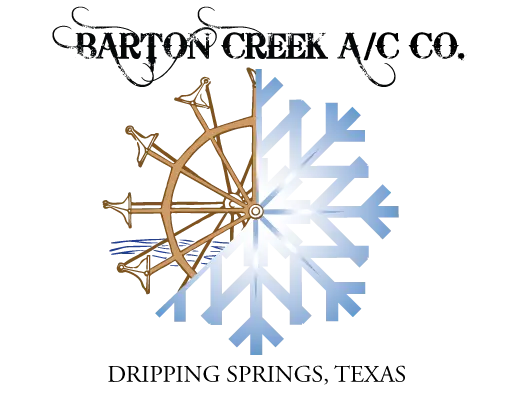Heating FAQs
Converting Nature into Comfort Utilizing Mechanics!
Even in warmer climates like Dripping Springs, TX, heating systems are a necessity for many homeowners during the chilly months. Homeowners often have numerous questions about how to maintain, repair, and optimize their heating systems to ensure maximum comfort and efficiency. To help our community stay cozy and informed, The Barton Creek A/C Co has compiled a list of the top heating FAQs. Learn more below!
CONTACT US TODAY
How often should I have my heating system serviced?
Most HVAC professionals recommend having your heating system serviced at least once a year, ideally before the start of the heating season. Regular maintenance helps ensure efficient operation and can extend the lifespan of your system.
What is the average lifespan of a furnace?
The average lifespan of a well-maintained furnace is typically 15-20 years. However, this can vary depending on factors such as the furnace type, usage, and the quality of installation and maintenance.
Can a dirty air filter cause my furnace to break down?
Yes, a dirty air filter can restrict airflow and cause your furnace to work harder, leading to potential breakdowns or system failures. It’s important to change or clean your air filters regularly as recommended by the manufacturer.
What is the difference between a single-stage and a two-stage furnace?
A single-stage furnace operates at one level of heat output, while a two-stage furnace has a low and high setting, allowing it to run more efficiently and provide better temperature control.
How can I prevent carbon monoxide poisoning from my heating system?
To prevent carbon monoxide poisoning, it’s crucial to have your heating system inspected and serviced annually by a qualified technician. Additionally, install carbon monoxide detectors in your home and never operate fuel-burning appliances in enclosed spaces.
What is a heat pump and how does it work?
A heat pump is a type of heating and cooling system that transfers heat from one place to another, rather than generating heat directly. It uses refrigerant and electricity to transfer heat energy instead of generating it directly like a furnace does.
Why is my furnace making loud noises?
Loud noises from your furnace can indicate issues like a failing component, airflow restrictions, or problems with the blower motor. It’s best to have a technician inspect and diagnose the cause.
Should I repair or replace my aging heating system?
The decision to repair or replace your heating system depends on factors like its age, repair costs, energy efficiency, and long-term plans for the home. A professional can assess your system and provide guidance on the most cost-effective option.
What are the different types of heating systems?
The most common types of heating systems are furnaces (gas or electric), boilers (hot water or steam), heat pumps, and ductless mini-split systems. The right choice depends on your home’s setup, climate, and heating needs.
How do I know if my furnace needs repair or replacement?
Some signs it may be time to replace are if your furnace is over 15 years old, needs frequent repairs, can’t heat your home evenly, or your energy bills are skyrocketing. An HVAC professional can inspect it and advise if repair or replacement is better.
What maintenance is required for a boiler system?
Annual tune-ups are a must to ensure safe and efficient operation. This includes cleaning the burners, checking the combustion air openings, testing safety controls, and making any needed adjustments.
Can heating repairs be done DIY or should I hire a pro?
While some basic maintenance like changing air filters can be DIY, most heating repairs require specialized tools and knowledge. Hiring an HVAC technician is recommended for complex issues to avoid safety risks and further damage.
How can I improve my heating system’s energy efficiency?
Start by properly insulating and sealing air leaks in your home to reduce heat loss. Having a programmable thermostat and only heating occupied areas can also save energy. Upgrading to a new high-efficiency furnace or boiler makes a big difference too.
Why is my furnace blowing cold air?
If your furnace is blowing cold air, there could be an issue with the pilot light or gas supply. It may also mean the air filter is clogged or there’s a problem with the blower fan or limit switch. Best to have an HVAC tech take a look.
How do I choose the right-sized heating system for my home?
Proper sizing is crucial for heating efficiency and comfort. It depends on factors like your home’s square footage, insulation levels, number of rooms and windows, and your local climate. An HVAC pro can do a heat load calculation to determine the ideal system size.
Contact The Barton Creek A/C Co For Answers To All Your Heating FAQs
For expert guidance and solutions to all your heating FAQs, trust The Barton Creek A/C Co to deliver unparalleled service and support. Our team of HVAC professionals is dedicated to ensuring your comfort and satisfaction year-round, offering comprehensive solutions tailored to your specific needs. Contact us today to schedule a consultation and experience the difference firsthand. Let us help you keep your home warm and cozy.
